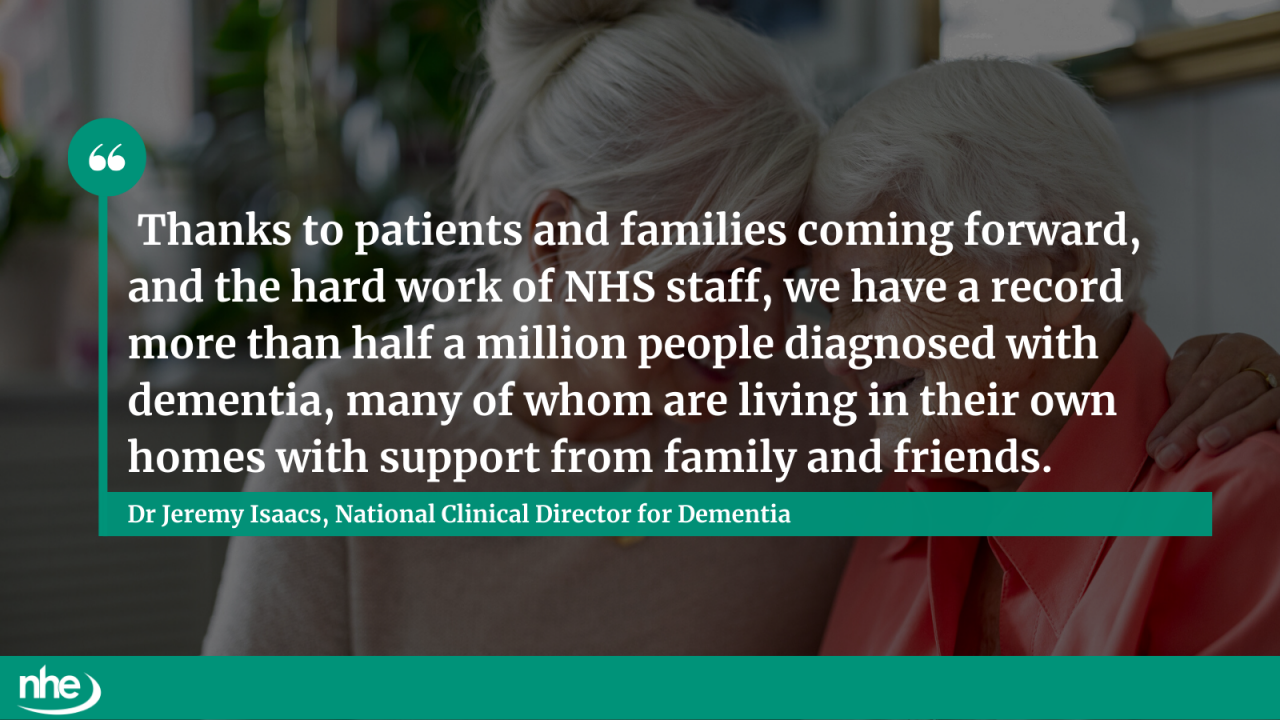A record 506,549 people have now received a dementia diagnosis on the NHS, as the health service ramps up support for the UK’s biggest killer.
The milestone reflects a growing commitment to early diagnosis, personalised care, and community-based support under the NHS’s 10 Year Health Plan.
The latest figures show a rise from 490,163 diagnoses this time last year, highlighting improved awareness and access to testing. Dementia remains a major public health challenge, and timely diagnosis is vital to ensure people receive the care and support they need.
As part of its strategy to deliver care closer to home, Imperial College Healthcare NHS Trust has launched MinderCare, a pioneering at-home monitoring service designed to help people living with dementia stay safe and well in their own homes.
Using discreet sensors placed on bed mattresses, household appliances, and doorways, MinderCare allows clinical teams to monitor daily routines, medication responses, and signs of infection or deterioration. The technology is backed by over a decade of research in partnership with the UK Dementia Research Institute and funded by the NIHR Imperial Biomedical Research Centre.
Families have praised the system for providing peace of mind, enabling earlier intervention and more responsive care planning. The service aims to reduce unnecessary hospital admissions and improve quality of life for patients and carers alike.
NHS England’s National Clinical Director for Dementia, Dr Jeremy Isaacs, said:
“Thanks to patients and families coming forward, and the hard work of NHS staff, we have a record more than half a million people diagnosed with dementia, many of whom are living in their own homes with support from family and friends.
“MinderCare is a great example of the NHS trialling cutting-edge technology to help more people to live safely in their own homes.
“As families gather this bank holiday weekend perhaps for the first time in months, it’s an opportunity to spot the signs of dementia.
“There are lots of reasons why people might be forgetful or absent-minded but it could be the sign that something is wrong.
“Issues that may not have been obvious previously such as forgetfulness, difficulty making plans, or word-finding problems may be easier to spot when families or friends across the country get together for an extended period.
“Getting a diagnosis of dementia is the first step in supporting people, with a wide range of NHS services able to help.”

Nationally, the NHS has delivered:
- 330,460 care plans or reviews
- 114,447 medication reviews
in the past year, supporting people to manage their condition effectively.
England’s top dementia doctor is urging anyone concerned about memory loss or early symptoms to seek testing, emphasising that early diagnosis leads to better outcomes.
With dementia now the leading cause of death in the UK, innovations like MinderCare and increased diagnostic rates mark a significant step forward in tackling the disease and supporting those affected.
Image credit: iStock



















